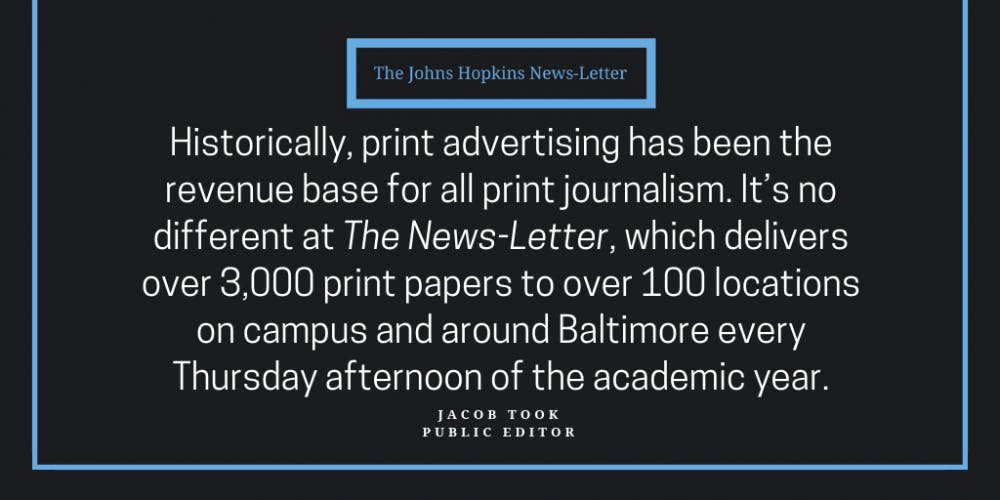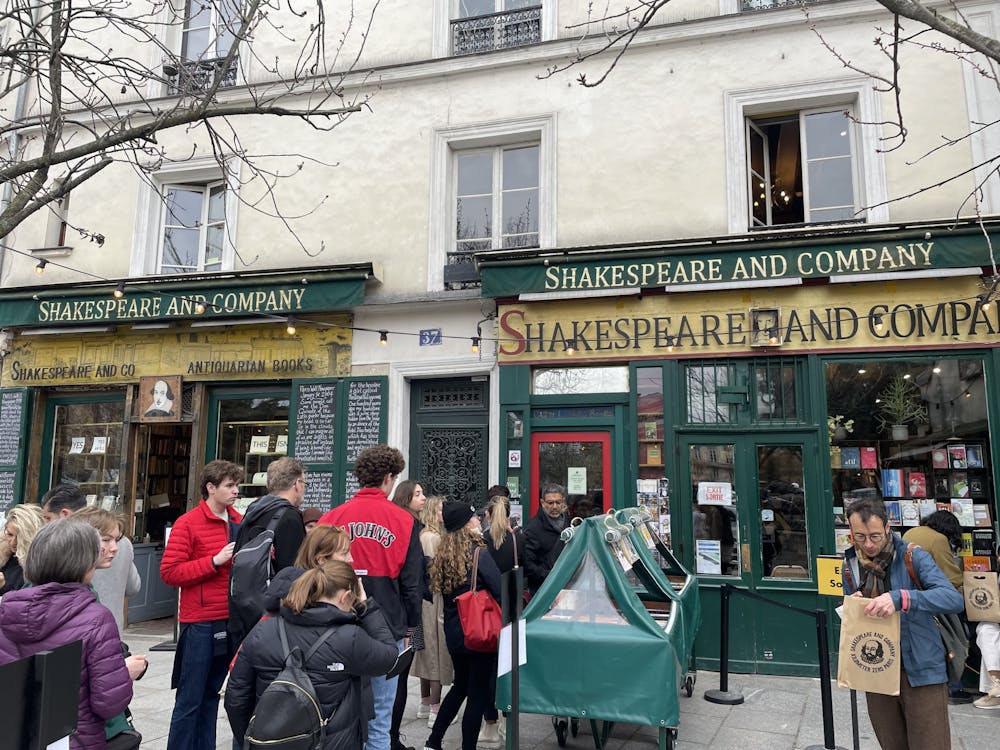
So last week’s editorial was titled “Does print journalism have a future?” Pretty dramatic. I bet the irony was especially tactile if you read that in the print issue. More likely, though, you were reading online. Maybe you were browsing our website or our Facebook page, and you raised your eyebrows and thought, this feels relevant to what I’m doing right at this very moment.
It’s not really a dramatic question to ask, though, as the editorial suggests — The Diamondback, the University of Maryland’s independent student newspaper, will transition out of print by next March. This very same question looms over The News-Letter.
I’ve found that a lot of readers don’t know much about the way finances work behind the scenes at The News-Letter. I met up with the paper’s Chief Business Officer (CBO) Victoria De Castro on the terrace outside Brody Café to learn more about her plans for the year.
De Castro stepped into the role of CBO just a few weeks ago, and she got to work tackling a tall order of tasks — as CBO, she oversees advertisements, billing and invoices, fundraising and alumni outreach. Recognizing that she’s just one person (not to mention a full-time student), she brought on three new business staff — freshmen Esther Shin and Jaxon Wu, fundraising chairs who will also each respectively manage marketing and alumni outreach, as well as senior Morgan Hendry, the paper’s advertising chair.
While De Castro works to make sure the print issue prints each week, she said that the future of The News-Letter is inevitably linked to the web.
“The emails I’m getting from interested clients — some of them are for print, but a lot of them are for online,” she said. “Our future is involved with online advertising and putting more of our online presence out there.”
Historically, print advertising has been the revenue base for all print journalism. It’s no different at The News-Letter, which delivers over 3,000 print papers to over 100 locations on campus and around Baltimore every Thursday afternoon of the academic year. The price tag? Local businesses can take out a full page color ad for $1,200. On the other hand, an eighth page ad goes for $125. Student groups can get discounts — $50 for an eighth page, or 25 percent off any other size.
Contrast that with the paper’s online advertising — the website gets around 30,000 to 40,000 unique visitors a month, and depending on the ad size you’re looking for, it’ll set you back $75 to $150 per week, with a 25 percent discount for ads running over a month.
The editors don’t have data on the average number of print copies that get picked up every week, but part of my job as Managing Editor last year was to recycle the leftover papers each week. Sometimes, I found stacks empty, which meant 50 people had walked past and taken a copy of the paper since the week before. But I also recycled a lot of papers.
In the past, The News-Letter has relied almost exclusively on advertisements for revenue and has aimed to break even by the end of the year. De Castro wants to change that, with plans to raise funds on campus. The starting point? Why not donuts? Who doesn’t want a donut for a dollar on a rough day? Her staff will work on other initiatives, too, like negotiating advertising deals with local restaurants and businesses in exchange for fundraiser support or building a network of alumni to further broaden the paper’s fundraising efforts.
De Castro’s plans to raise funds and cultivate more advertisements both in print and online will be an important part of that effort to keep The News-Letter in print.
“I really like the responsibility because I can see the impact of my actions being that The News-Letter is published every Thursday,” De Castro said.
Raising funds on campus means asking you, my fellow readers and Hopkins undergraduates, for your support. Before doing that, the paper has to make sure readers feel heard and represented. That’s where I come in. I don’t work with the paper’s business staff, and I’m not going to be involved with any fundraisers, but I’m here to make sure that readers get the best quality journalism from editors who respond to their critical feedback. But I am hoping my fellow readers think The News-Letter is worth investing in.
We want you to be part of this conversation! We encourage all our readers, and particularly members of the Hopkins and Baltimore community, to email publiceditor@jhunewsletter.com with questions or comments about our practices and published content.





